Tags
Alexander the Great Gualterus de Castellione, allegory, battle, Biblioteca Angelica, Boccaccio, Boethius, Bolognese, Bosone da Gubbio, Campaldino, canticle, Canto, Christian, Cicero, Dante Alighieri, destiny, dialect, Europe, exile, facsimile, Florence, gold, Guelphs, hand-treated paper, hell, Holy Trinity, Italian, Jacopo Alighieri, Latin, littera textualis, manuscript, medieval, miniature, paradise, Petrarch, philosopher, poem, poet, purgatory, scribe, soldier, song, tanned leather, tercets, terza rima, The Divine Comedy, Thomas Aquinas, tripartite stanza, Tuscan, vernacular, Virgil
“Consider your origin. You were not formed to live like brutes but to follow virtue and knowledge.”
La Divina Commedia Angelica
Dante Alighieri (1265-1321)
Castel Guelfo di Bologna, Italy: Imago la Nobilita del Facsimile, 2016
PQ4301 A1 2016
Facsimile. MS1102 from the Biblioteca Angelica, this late fourteenth century Bolognese codex contains The Divine Comedy, commentary by Jacopo Alighieri and Bosone da Gubbio, and a fragment of a poem written by Alexander the Great Gualterus de Castellione. Each of the Cantos are introduced with a miniature depicting the contents of the song. Thirty-four other miniatures depict scenes from hell in bright colors on a gold background. The manuscript is incomplete. Empty spaces were left for miniatures for the songs of “Paradiso” and “Purgatorio.” It is likely that only one scribe is responsible for the text. The script hand is littera textualis. The facsimile has hand applied gold leaf before each canticle on hand-treated paper. The binding is hand stitched in a naturally tanned leather.
Dante Alighieri, born in Florence, to a notable family but of modest means, was an Italian poet and philosopher. He is best known for the monumental epic poem La divina commedia (The Divine Comedy), a medieval Christian allegory of man’s temporal and eternal destiny. The poet draws on his own experience of exile from his native city, in which he encounters hell, purgatory, and paradise. Along the way, the poet offers analysis of contemporary problems and spiritual wisdom through inventive linguistic imagery. Dante wrote his epic poem in the vivid Italian vernacular, rather than Latin, using primarily a Tuscan dialect which became the literary language in western Europe for centuries. Dante’s use of the vernacular opened his work to an audience broader than the academy.
Dante was classically trained and drew on the works of Virgil, Cicero, Boethius and others for his philosophical thinking. He was also well aware of more contemporary writers such as Thomas Aquinas. A soldier, he fought in the ranks at the battle of Campaldino in 1289 on the side of the Guelphs — a battle instrumental in the reformation of the Florentine constitution.
Dante is credited with inventing terza rima, composed of tercets woven into a linked rhyme scheme. He ended each canto of the The Divine Comedy with a single line that completes the rhyme scheme with the end-word of the second line of the preceding tercet. The tripartite stanza is symbolic with the Holy Trinity. Later Italian poets, including Boccaccio and Petrarch, followed this form.
Facsimile edition of 423 copies, 25 hors de commerce. University of Utah copy is no. 18.

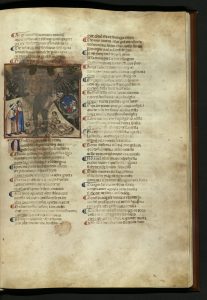
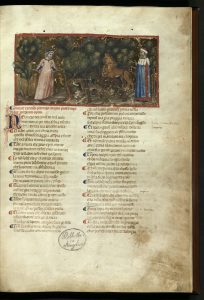
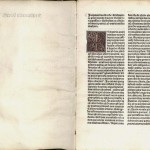
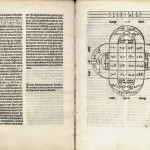
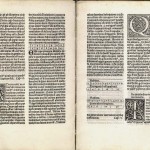
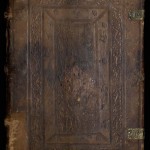
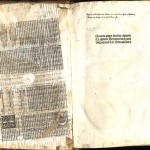
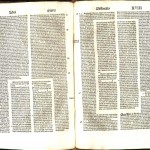
You must be logged in to post a comment.